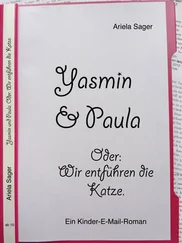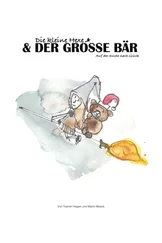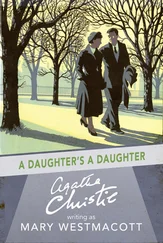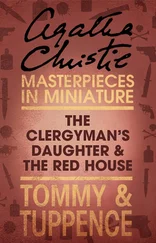Her brother came into view as he turned the corner from the main road – a small figure lugging a basket of fish and vegetables, veering from side to side to avoid the piles of cow dung that dotted the field. When he approached the front steps, Marmee called out to her mother, and Wappumma hurried to take down the crossbar that had been set against the front door. It had been there since her son left in the morning to shut out anyone or anything that could intrude on the modesty of the widow and her daughter.
“Don’t let any outsiders in before you have given us time to hide,” Wappumma always told her son as he stepped inside. Now that he was home, neighborhood boys and male cousins several times removed might walk into the house. He didn’t need the warning. Early on, he had acquired the trait that was to last a lifetime – the fierce protection of female honor. Acutely aware of the presence in his home of the non-mahram —the unpermitted male – he allowed no man in before he had shouted out a warning and heard the patter of feminine feet hurrying away.
The first sign of such a man approaching, and Marmee fled. She didn’t linger a second longer than she should have. Or so she told me. She appeared to be one of those girls, so numerous in those days, who if their elders drew a line on the ground and said, don’t put your foot beyond this, not even one little bit, they never did. I didn’t ask Marmee whether she was ever a bit curious about which man or boy was coming into the house. The question would have flustered her. It wasn’t something she allowed herself to think about: that she could choose to look or not. Her life was what it was supposed to be, nothing more or less. This was the key to the unquestioning obedience always held up for those of us who were showing signs of being less than perfectly docile. Besides, one of the lines drawn inside my own head, which I did not easily cross, was the one that said, don’t ask unnecessary questions .
No sooner than he had stepped inside, Marmee eagerly asked her brother what he might have seen in the Galle Fort that day. He brought reports of buildings three and four times as tall as their house, verandahs enclosed with rows of glass windows, and gates of polished brass you could mistake for gold. She tried to imagine what a motorcar looked like, marveled that white ladies walked all on their own in broad daylight, and that children were taken around in wheeled carriages. The day she heard about water that had turned into cold blocks of stone covered in sawdust, and sold by a man who pushed a cart, she wondered whether her brother made things up.
Marmee was most impatient to know about the happenings in the homes of the wealthy shangakara Muslims in the Galle Fort. To be told about their large houses with ornate gables, tiled roofs, spacious courtyards, and name boards with English lettering: Ocean View, Eglington, Jasmine Cottage, Haley ; the ebony divans and elaborately carved tables set up in the front halls; the tall ceramic vases and dwarf palms along the inner courtyards. And how intricately carved and beautiful the wooden lattice screens were, without exception, that sealed off the women’s quarters.
Her brother described what he saw as he walked by the double Dutch doors that opened out onto wide verandahs. What lay within he didn’t know. He never stepped inside any of those stately homes. In those early days, Kuhaffa Hadjiar’s jewelry shop on Leyn Baan Street was the only smooth floor in the Galle Fort that took the imprint of his dusty feet.
Before Marmee was done with her questions, her mother waved her aside. The widow had waited all day too, for her son to come home.
“A jackfruit fell down in the front garden. Pick it up before someone else does… Walk to cousin Zubeida’s house and tell her I’ll come by to see her after dark… I’ve been waiting to drink something. Can you pluck a King coconut for me?”
Wappah was happy to oblige – he didn’t want his mother to go outside her home more than absolutely necessary. They may have been poor, but he wasn’t going to allow people to say the females in his family roamed the village like infidel women.
His presence at home was valued most, at least by Marmee, when the roving salesman, Majeed Nana, came to the village. This itinerant trader carried on his head, a huge cloth bundle packed tight with textiles and fancy goods. His appearance always thrilled the maidens of Shollai who never set foot in a shop themselves.
A few weeks before the great festival of Ramazan, wives, daughters, sisters and aunts would divulge their preferences to the men in the families who did the shopping for them.
Some men ignored these declared choices and bought what they thought would look good on their female relatives; others, returning home with arms full of packages, learned to their befuddlement that taffeta was not the same as satin, and that silk came in various grades and textures, not all of them equally desirable. A few particularly sharp fathers and brothers did know how to choose “a saree with threadwork along the edges but nothing on the front border and no sequins unless they were the kind that wouldn’t come off if a small child was to tug on the fabric.”
Lately, some fashionable Fort ladies had begun to ask that they be taken to the entrance of textile stores in the Galle bazaar. Seated safely inside their curtained buggy carts, they chose from bolts of fabric that were brought to them. Marmee found it hard to believe that women could be so forward.
She gave no instructions, either, to her brother, so she said. And whatever Wappah brought her was alright, she said too. Yet, she counted the days till it was time for Majeed Nana to visit the village.
On one such day, Marmee, when she was fifteen or so, heard a loud voice.
Sarongs! Sarees! Cloth!
Sarongs! Sarees! Cloth!
She searched for her brother. Where was he? Had he stepped out into the backyard or gone to look for their roaming goats? Was he in the outhouse? She had no time to lose. If no voice stopped him – and only a male voice could do that – the trader would walk right by their house.
Wappah had heard Majeed Nana too and came running. When he called out, the cloth trader stopped and turned, then with slow steps, walked up to the small house. At the front door, he propped a wooden yardstick under the bundle on his head, shifted it to his shoulder and carefully brought it to the ground.
“Salaam alaikum, salaam alaikum,” Majeed Nana said aloud, as he wiped his forehead with the back of his hand. He pitched his greeting into the air as though he was speaking to no one in particular. But he knew full well, that watching his every move through a crack in the doorway, holding their breath until he untied his package, were the women of the household. The older, married females holding the door ajar, and the komarus standing behind, peering over their shoulders.
“Shiny satin… Manipuri sarees… Chintz… India muslin… Java sarongs…” Majeed Nana described his merchandise aloud as he laid them one by one on a white cloth. “Why,” he exclaimed, in a voice that was carried into the house, “this is what you get in all the fancy stores. If truth be told,” he pitched his voice a little higher, “this is what the Fort ladies like.”
The cottons came first: the cambric and flowered chintzes women used for everyday wear, the striped Java sarongs worn by men. Next lace, both broad and narrow, for trimming blouses and underskirts. And last of all, the sarees: delicate voiles, Manipuri silks with intricate cord work, georgettes embroidered in every color of the rainbow. When Majeed Nana wiped his hands on his sarong and unfolded the yards of an embossed chiffon, Marmee gave a little gasp.
Читать дальше


![Дочь 2 - Дочь кн [си]](/books/394766/doch-2-doch-kn-si-thumb.webp)









